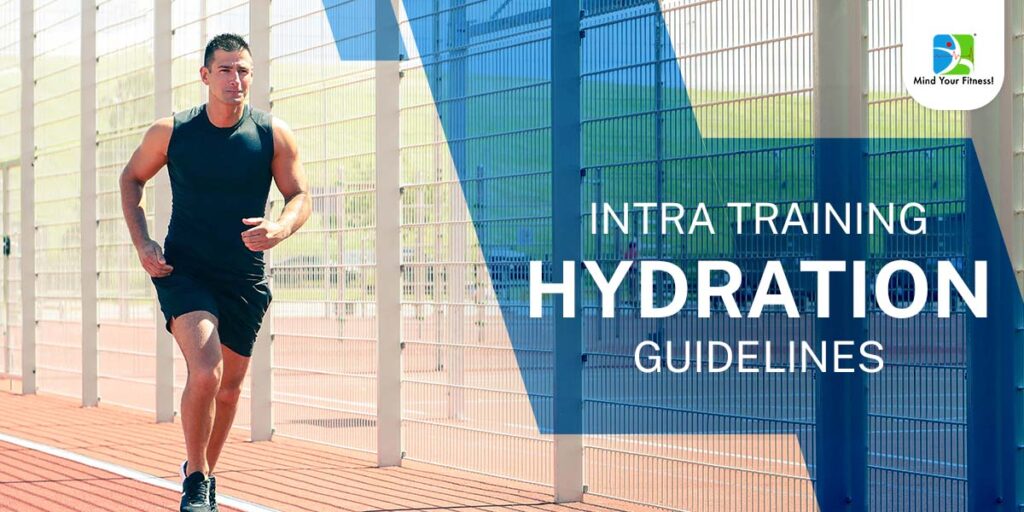
Prolong exercise leads to a lot of sweating, you need to drink fluid during exercise to replace the fluids you lose when you sweat. That way, you’ll reduce the risk of heat stress, maintain normal body function, and maintain performance levels. The general rule is: if you’re sweating, you need to be drinking fluids.
Water requirements differ from person to person, factors like sweat rate, the heat and humidity in the environment, intensity and duration of the exercise needs to be considered. These are some basic hydration guidelines that can be followed:
- Drink 3-7 ml / kg body weight 3-4 hours before exercise
- Drink 400 or 600 ml water 20-30 min before workout / training.
- During training, consumption of 450-650 ml for every 0.5 kg of body weight loss is recommended.
- 1.25 to 1.5 L liquids for every 1 kg of weight loss to be consumed after training.
For maintaining adequate hydration state during exercise, drink water as per your sweat rate, to work out your sweat rate:
- Weigh yourself in minimal clothing, as close to the start of exercise as possible (this is your initial weight).
- Do your exercise session.
- Record the volume of any fluid you consume during your exercise session.
- Weigh yourself again at the end of your session, in the same clothing as before (this is your final weight).
- Your weight change during exercise, plus any fluids consumed reflects your total fluid loss for that session.
To work this out:
- Subtract your final weight from your initial weight.
- Add the weight of fluid (in kg) that you consumed while exercising.
- To make this into an hourly rate, divide it by the number of hours you spent exercising.
Another way to make sure you’re staying properly hydrated is to check your urine. If your urine is white colour, you are overhydrated, light yellow or pale yellow indicates a well hydrated state. Dark yellow or amber-colored urine can be a sign of dehydration. Frequent urination during exercise session and weight gain can also indicate overhydration.
Dehydration can be a serious condition that can lead to problems ranging from swollen feet or a headache to life-threatening illnesses such as heat stroke. Not sweating during vigorous physical activity can be a red flag that you’re dehydrated to the point of developing heat exhaustion. Thirst isn’t the best indicator, If you are thirsty, you’re already dehydrated. It’s better to consume water with electrolytes and BCAA during training, after exercise you can have healthy snack like fruits and buttermilk.





